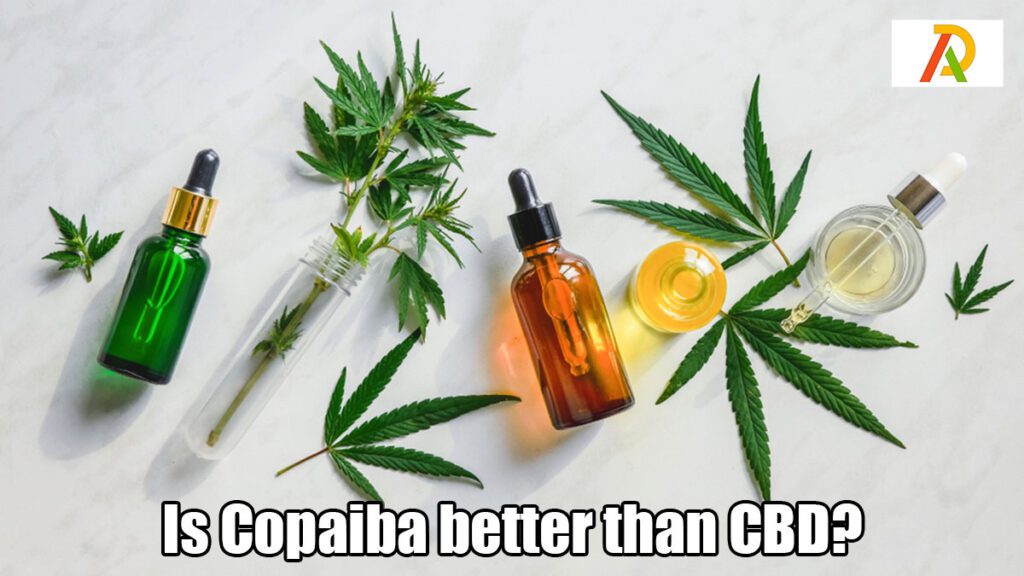Is Copaiba better than CBD?

You’ve probably seen CBD products everywhere – in health food stores, coffee shops, and gas stations. But you might not know that there’s another natural remedy that’s gaining popularity for its potential health benefits: Copaiba. In this article, we’ll compare CBD and copaiba oil so that you can decide which one is right for you.
What is Copaiba?
Copaiba is a natural resin that comes from the Copaifera tree. This tree is native to South America, and the resin has been used for centuries by indigenous people in the region for its medicinal properties. The main active ingredient in Copaiba is beta-caryophyllene, also found in CBD oil. However, Copaiba also contains other compounds that may provide additional health benefits.
What is CBD?
Cannabidiol, sometimes known as CBD, is one of the many chemical substances found in the cannabis plant. In contrast to THC, its more well-known counterpart, CBD has no intoxicating effects. Therefore, you won’t get high from it.
CBD has been shown to have several potential health benefits. For example, it may help reduce inflammation and pain and also have anti-anxiety and anti-seizure effects.
Copaiba is a resin from the Copaifera tree, which is native to Brazil. Like CBD, Copaiba contains various chemical compounds, including beta-caryophyllene (BCP). Some people believe that BCP may offer similar health benefits to CBD.
So far, there is limited scientific evidence to support the use of Copaiba for any health condition. However, some preliminary research indicates that it may offer certain benefits, such as reducing inflammation and pain.
There is no clear evidence that Copaiba is better than CBD at reducing inflammation or pain. However, more research is needed to determine if Copaiba has other potential health benefits.
The benefits of Copaiba
Copaiba is a tree native to Brazil that has been used for centuries by the indigenous people for its medicinal properties. The oil from the tree’s resin is said to have anti-inflammatory, antibacterial, and antifungal properties. Some believe that Copaiba is even more effective than CBD oil in treating various conditions, including pain, anxiety, and inflammation.
The benefits of CBD
There is much debate in the natural health community about which is better for you, CBD or Copaiba. Both have unique benefits, and it depends on your individual needs as to which one would be better for you. Here, we’ll take a look at the benefits of each so that you can make an informed decision.
CBD is known for its ability to reduce anxiety and promote relaxation. It can also help to ease pain and inflammation. On the other hand, Copaiba is known for its ability to boost the immune system and fight infection. It’s also been shown to be effective in reducing inflammation. So, if you’re looking for something to help with anxiety or pain relief, CBD may be the better choice. However, if you’re looking for something to boost your immune system or fight infection, Copaiba may be the better choice.
Who should use Copaiba?
There are a few different ways to use Copaiba. You can apply it topically, take it internally, or diffuse it. Topical application is good for skin conditions like psoriasis, eczema, and acne. It can also relieve pain from bruises, muscle aches, and arthritis. You can take Copaiba internally by adding a few drops to water or putting it under your tongue. This is said to help with inflammation, anxiety, and even depression. Finally, you can diffuse Copaiba to help purify the air and reduce stress.
Who should use CBD?
CBD has many potential benefits, but it isn’t for everyone. Here’s who should use CBD and who shouldn’t use it.
Those who may use CBD:
- People with chronic pain
- People with anxiety disorders
Those who shouldn’t use CBD:
Conclusion
Although there is still much research on the benefits of Copaiba, this oil may be a promising alternative to CBD. Copaiba appears less expensive and has fewer side effects than CBD, making it a good option for those looking for natural relief. If you want to try Copaiba, speak with your healthcare provider to ensure it is right.


